Unveiling Ukraine's rehabilitation heroes: the pivotal role of social workers in wartime
July 31, 2023
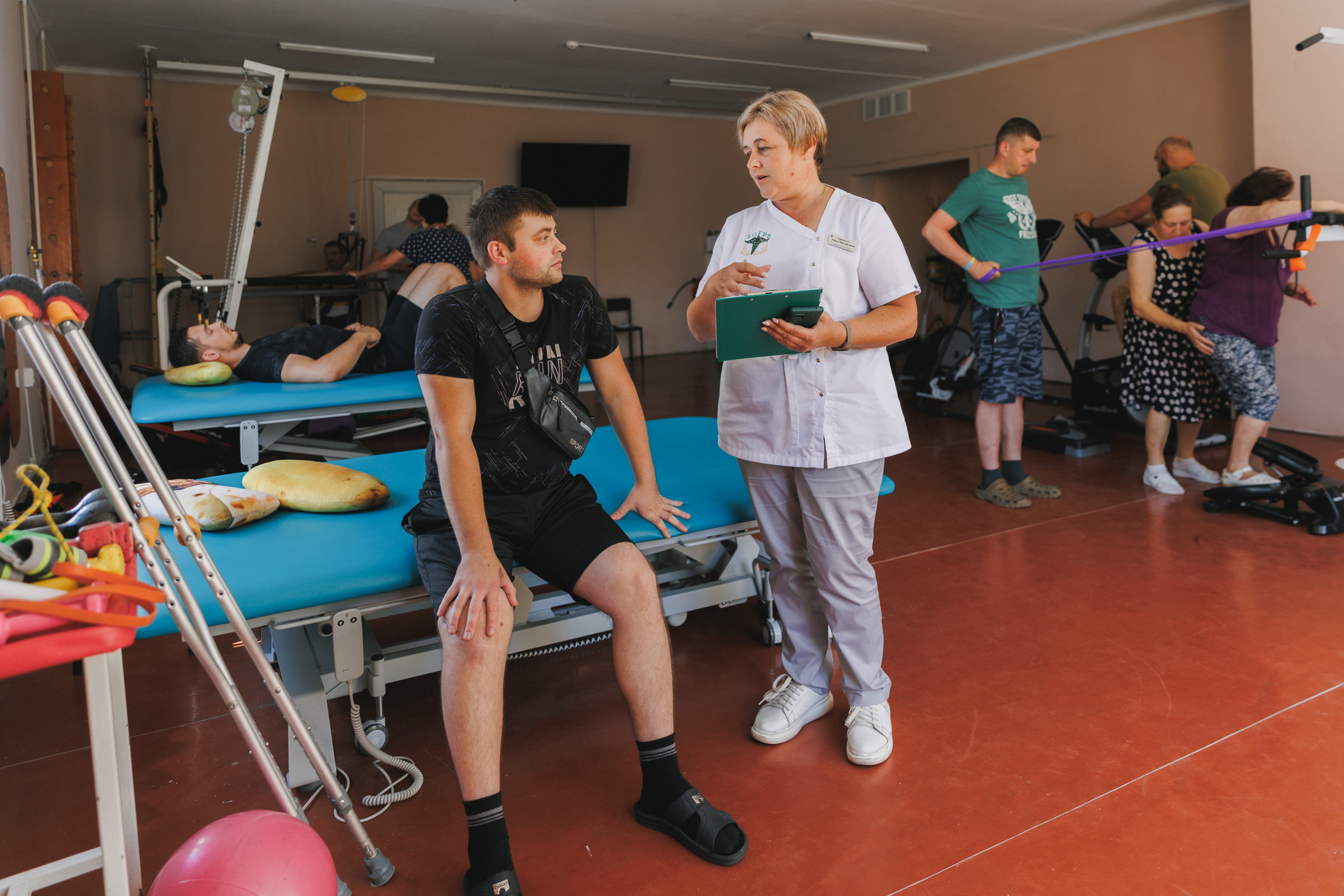
Social worker Raisa Turanska talks with hospital patients.
In the wake of persistent warfare in Ukraine, countless individuals are facing the formidable task of rebuilding their lives after sustaining severe injuries, amputations, and acquired disabilities. Rehabilitation is no simple journey—it’s a battle against physical, emotional, and socioeconomic hurdles, where the role of social workers becomes instrumental.
Meet Raisa Turanska, both a social worker at the Khmelnytskyi Regional Hospital for War Veterans, and a lifeline for those in the toughest fight of their lives. She shares her experience and offers an intimate glimpse into the crucial role social workers play in the challenging journey of rehabilitation.
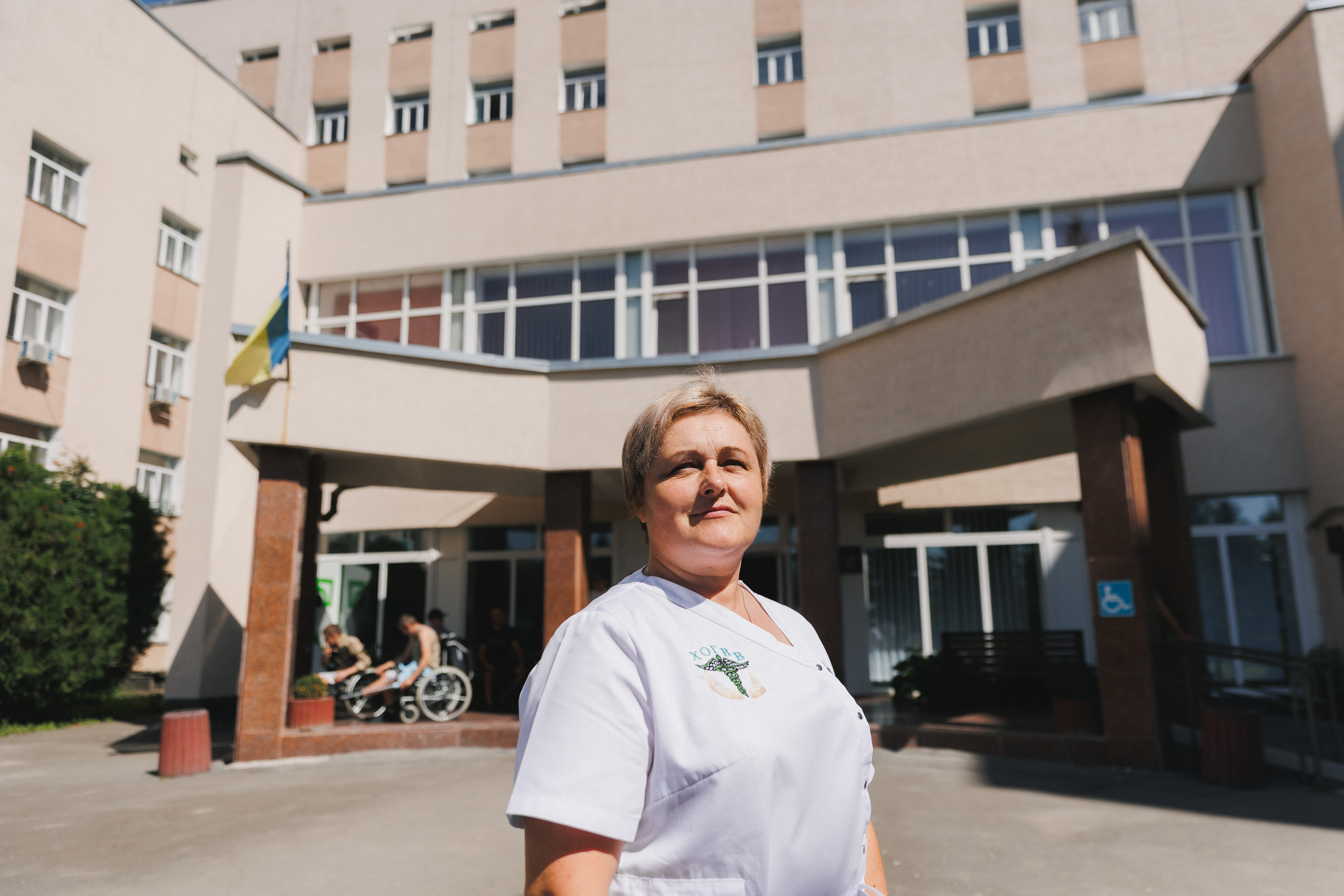
Social worker Raisa Turanska, pictured in front of the Khmelnytskyi Regional Hospital for War Veterans.
She says true recovery goes beyond medical treatment, necessitating a holistic approach that addresses psychological, social, and economic aspects.
"I often find myself in a situation where I need to be a universal specialist. Working with doctors, relatives, and patients, I play a meaningful role in addressing various topics and clarifying any uncertainties. I advise patients on the necessary documents and help with their registration so that they have the appropriate resources when they leave the hospital," she said.
Aware of the need for comprehensive care, Ukrainian rehabilitation centres employ multidisciplinary teams of professionals from various fields, including physical and rehabilitation medicine, occupational therapy, physiotherapy, and psychological support.
However, integrating social workers into these teams at first encountered numerous challenges. The lack of a clearly defined source of funding in the legislation and a lack of understanding of social workers' importance, role, and key functions prevented their earlier involvement. Although the legislation recognizes the need for participation, the lack of clearly defined mechanisms hindered their integration, leaving unclear functions, documentation, and funding sources.

Social worker Raisa Turanska discusses a patient's case together with the deputy director of the hospital.
The Khmelnytskyi Regional Hospital for War Veterans set a valuable precedent by engaging a social worker in the multidisciplinary rehabilitation team. Raisa recalls how when she came to the hospital in February, she became one of the first social workers in Ukraine to be included in the hospital staff:
"Our hospital specializes in rehabilitation, with three multidisciplinary teams that deal with the general process of rehabilitation and subsequent treatment, where all departments work together to provide rehabilitation services,” she said.
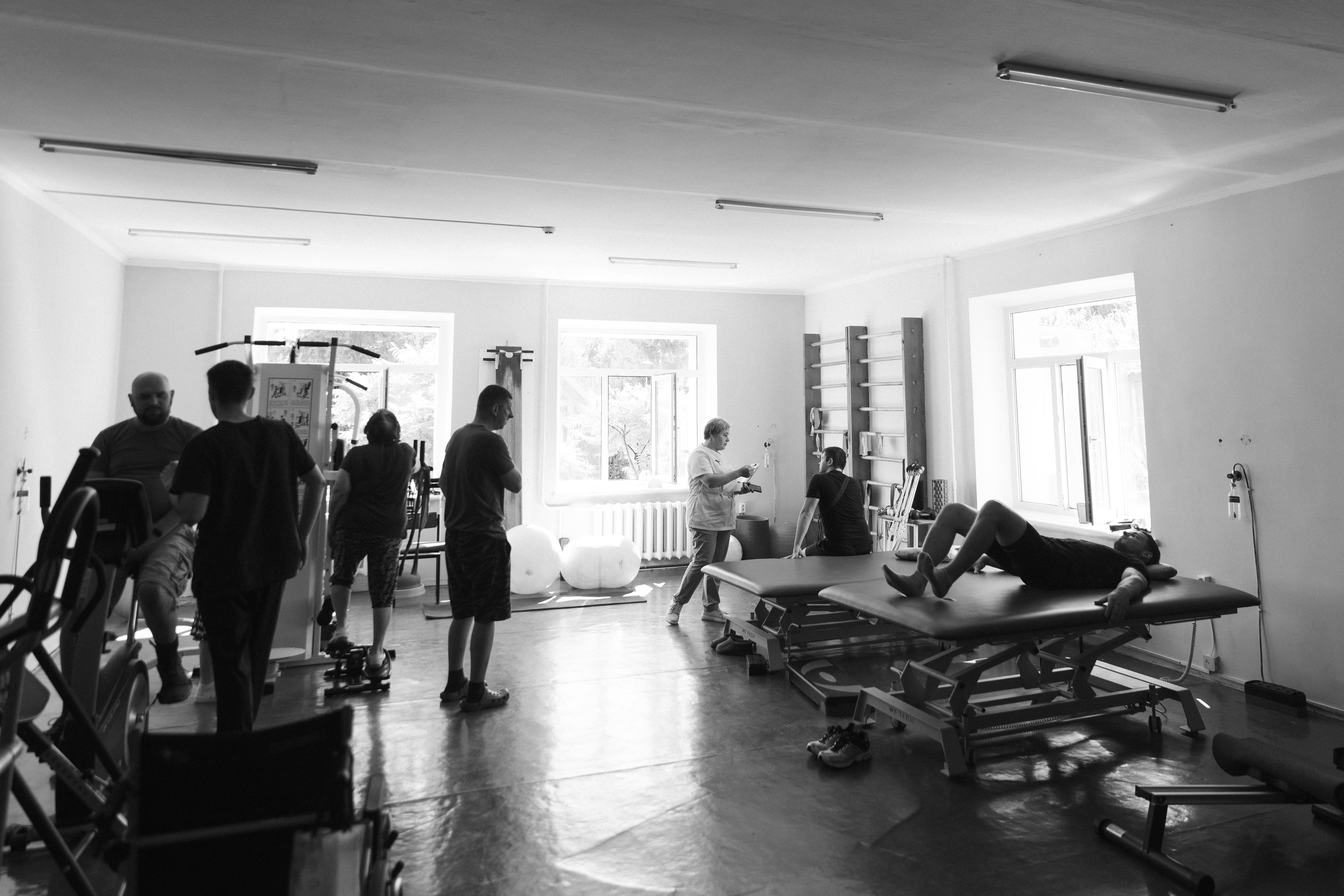
Social worker Raisa Turanska talks with hospital patients.
Raisa reveals the immense workload shouldered by doctors as they juggle both medical care and rehabilitation. Amidst such challenging circumstances, procuring necessary information for patients can prove daunting. This is where the social worker steps in, bridging the gap in a crucial role. "As a social worker, I coordinate, learn, and provide valuable information to patients, trying to help them navigate their challenges,” she said.
“Their cases must be heard and understood."
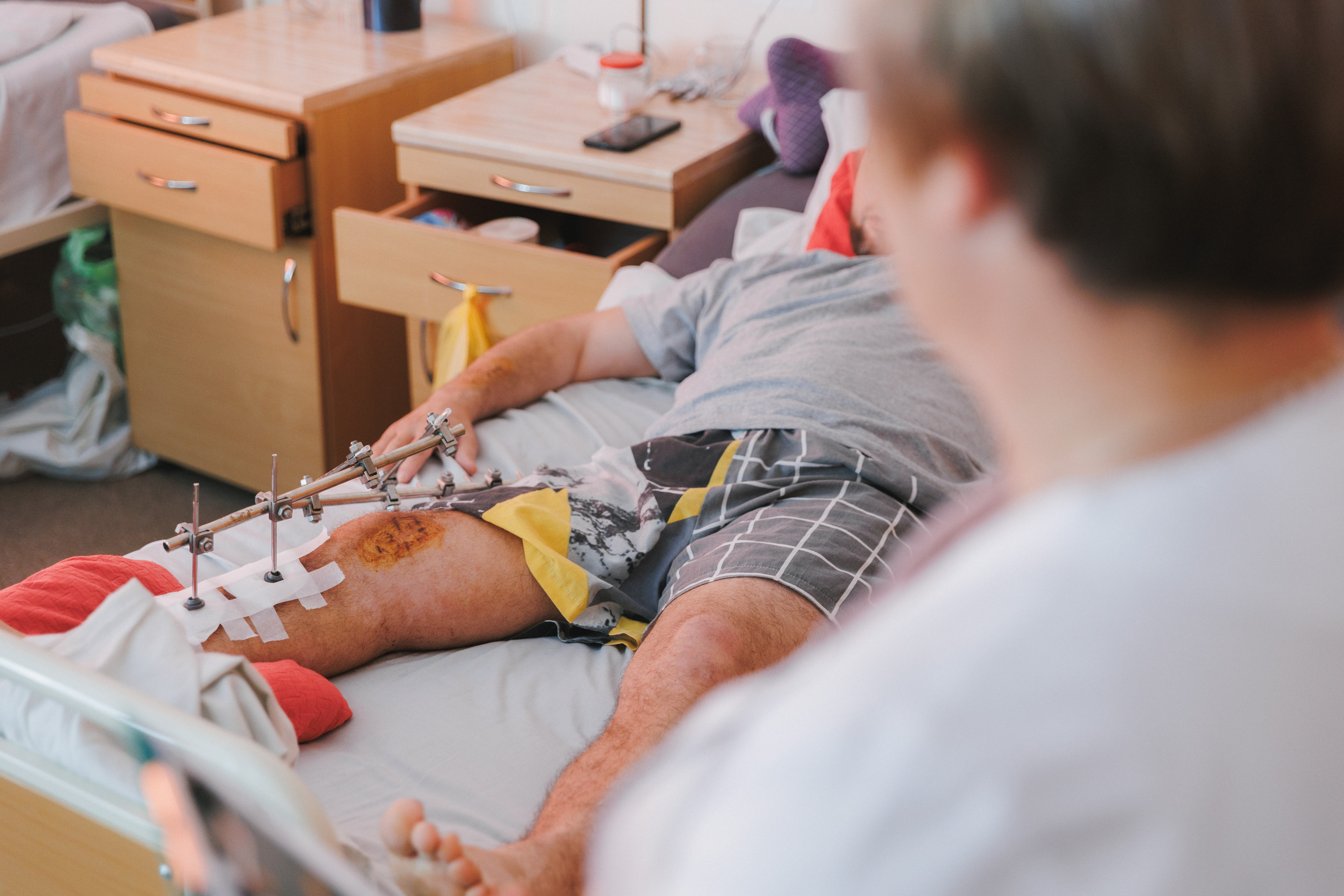
Social worker Raisa Turanska talks with hospital patients.
Outreach is another aspect of Raisa's role, including assisting patients with processing or restoring lost documents, registering for benefits, and more. In addition, she often communicates with patients' relatives, touching on a wide range of topics. "Although the role of a social worker differs from that of a psychologist, I listen and support and then refer people to psychotherapists or other professionals for additional support if needed," she said.
Interacting with patients in war conditions requires an empathetic approach. Raisa says that one of the challenges veteran patients face, in particular, is adapting to civilian life after war trauma. Communication and understanding can be difficult for them, as they often do not want the focus to be solely on their experiences.
"It's painful and difficult to hear everyone's personal stories,” she said. “I sincerely sympathize and try to do everything possible to help them on the road to recovery. It is important to understand that the treatment period can be long, and veteran patients often worry about their comrades who remain in the war zone. Understanding their concerns, I provide support to ease their anxieties."
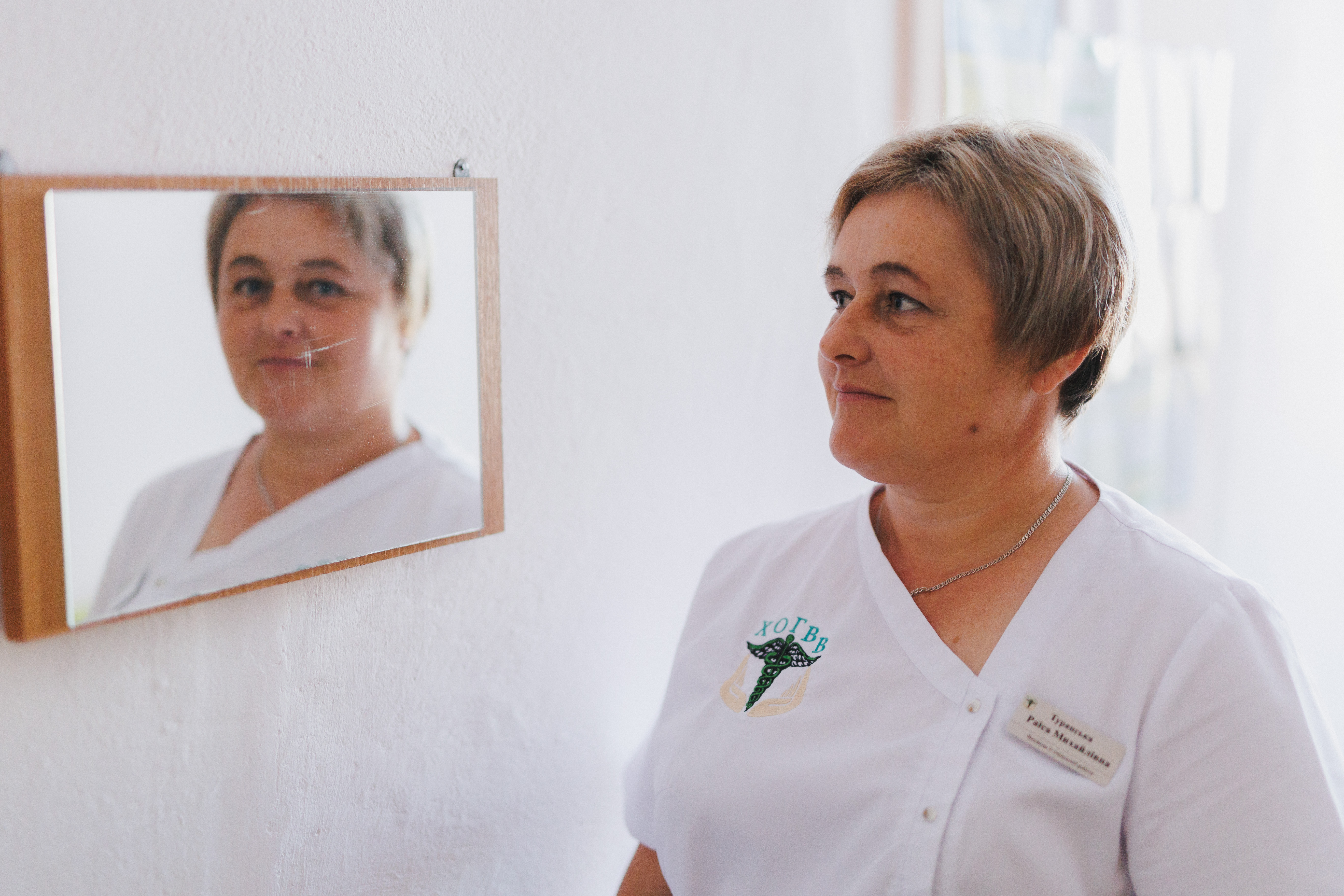
Social worker Raisa Turanska.
In response to the challenges faced by the rehabilitation sector, the United Nations Development Programme (UNDP) in Ukraine has become an important partner in promoting rehabilitation. Within the project "Support for the Rehabilitation of People with Disabilities Caused by War," which is implemented with financial support from the governments of the Republic of Korea and Germany, as well as in cooperation with the Office of the President, the Ministry of Social Policy, and the Ministry of Health of Ukraine, UNDP actively supports the involvement of multidisciplinary social worker teams in 17 target institutions across the country.
The goal of this initiative is to pilot the integration of teams of social workers in these institutions and, if successful, to spread this model of work to other institutions throughout Ukraine. To support this pilot programme, UNDP has carefully developed a comprehensive package of documents for social workers outlining their duties and responsibilities.
In addition, UNDP has conducted specialized training programmes to equip social workers with the necessary skills and knowledge for their roles. Throughout the pilot phase, UNDP is providing ongoing advisory support to ensure the smooth implementation of the programme. The project's financing covers the wages of social workers during the pilot period. More sustainable funding sources will need to be identified for eventual upscaling and integration with the national health service.
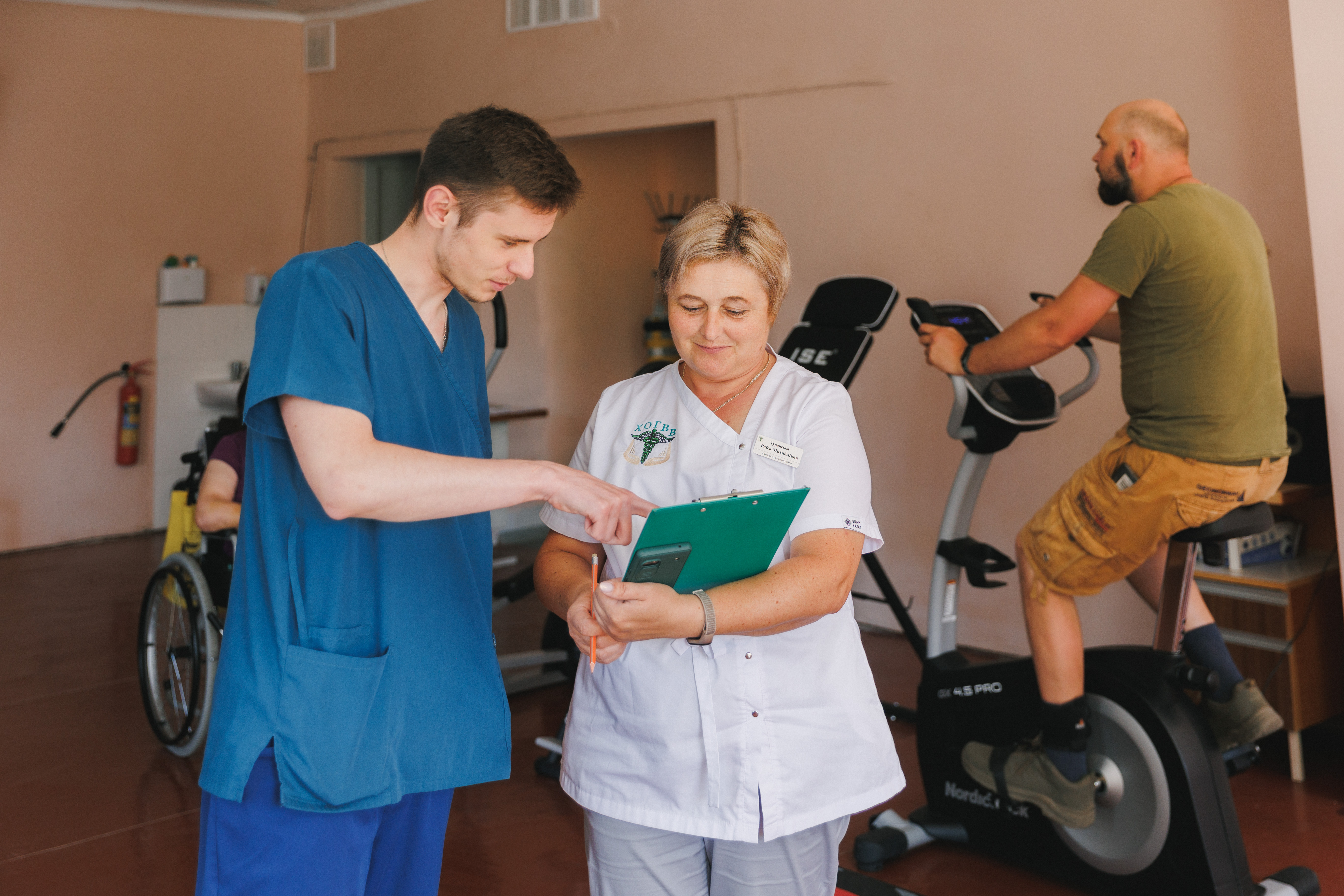
Social worker Raisa Turanska, together with her colleague, discusses a patient's case.
In these challenging circumstances, UNDP and the NGO 'SpivDiia' work hand in hand. SpivDiia coordinates the efforts of social workers and implements necessary supervision, bolstering the support system for these crucial members of the rehabilitation team. Empowered by this collaboration, social workers can effectively carry out their duties, providing much-needed assistance to individuals on the path to recovery.
In the end, Raisa reveals that her metric of success transcends the physical. “It's about the rekindling of lives, dreams, and aspirations shattered by war,” she says.
"'My ultimate aim is to foster a holistic rehabilitation process, enhancing the well-being of those affected by war. Nothing compares to the reward of witnessing their journey – from bedridden beginnings to aided mobility, and finally, reclaiming their independent strides.'"

 Locations
Locations




